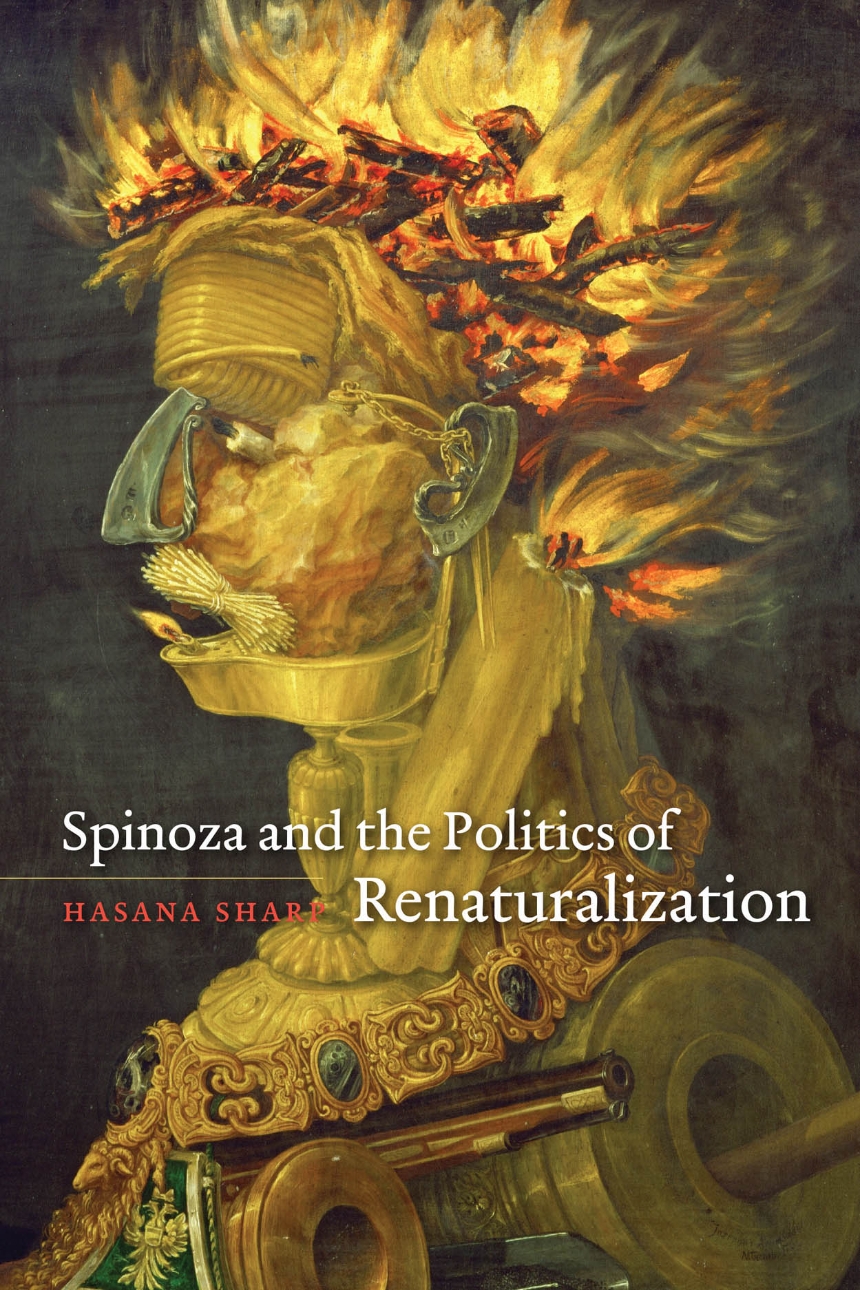Spinoza and the Politics of Renaturalization
There have been many Spinozas over the centuries: atheist, romantic pantheist, great thinker of the multitude, advocate of the liberated individual, and rigorous rationalist. The common thread connecting all of these clashing perspectives is Spinoza’s naturalism, the idea that humanity is part of nature, not above it.
In this sophisticated new interpretation of Spinoza’s iconoclastic philosophy, Hasana Sharp draws on his uncompromising naturalism to rethink human agency, ethics, and political practice. Sharp uses Spinoza to outline a practical wisdom of “renaturalization,” showing how ideas, actions, and institutions are never merely products of human intention or design, but outcomes of the complex relationships among natural forces beyond our control. This lack of a metaphysical or moral division between humanity and the rest of nature, Sharp contends, can provide the basis for an ethical and political practice free from the tendency to view ourselves as either gods or beasts.
Sharp’s groundbreaking argument critically engages with important contemporary thinkers—including deep ecologists, feminists, and race and critical theorists—making Spinoza and the Politics of Renaturalization vital for a wide range of scholars.
256 pages | 6 x 9 | © 2011
Philosophy: General Philosophy
Political Science: Political and Social Theory
Reviews
Table of Contents
Ingredients
PART I RECONFIGURING THE HUMAN
1 Lines, Planes, and Bodies: Redefining Human Action
Action as Affect
The Transindividuality of Affect
The Tongue
2 Renaturalizing Ideology: Spinoza’s Ecosystem of Ideas
The Matrix
Ideology Critique Today?
The Fly in the Coach
“I am in Ideology,” or The Attribute of Thought
What Is to Be Done?
3 Man’s Utility to Man: Reason and Its Place in Nature
The Politics of Human Nature
Reason and the Human Essence
Man’s Utility to Man
Nonhuman Utility
PART II BEYOND THE IMAGE OF MAN
4 Desire for Recognition? Butler, Hegel, and Spinoza
Spinoza in Hegel
Desire in Hegel
Conatus and Cupiditas in Spinoza
From Interpersonal Recognition to Impersonal Glory
Judith Butler’s Post-Hegelian Politics of Recognition
5 The Impersonal Is Political: Spinoza and a Feminist Politics of Imperceptibility
The Politics of Recognition
Elizabeth Grosz’s Critique of the Politics of Recognition
Thinking beyond the (Hu)Man
A Politics of Imperceptibility
6 Nature, Norms, and Beasts
The Beast Within
Animal Affects (and) the First Man
Ethics as Ethology?
Works Cited
Index
